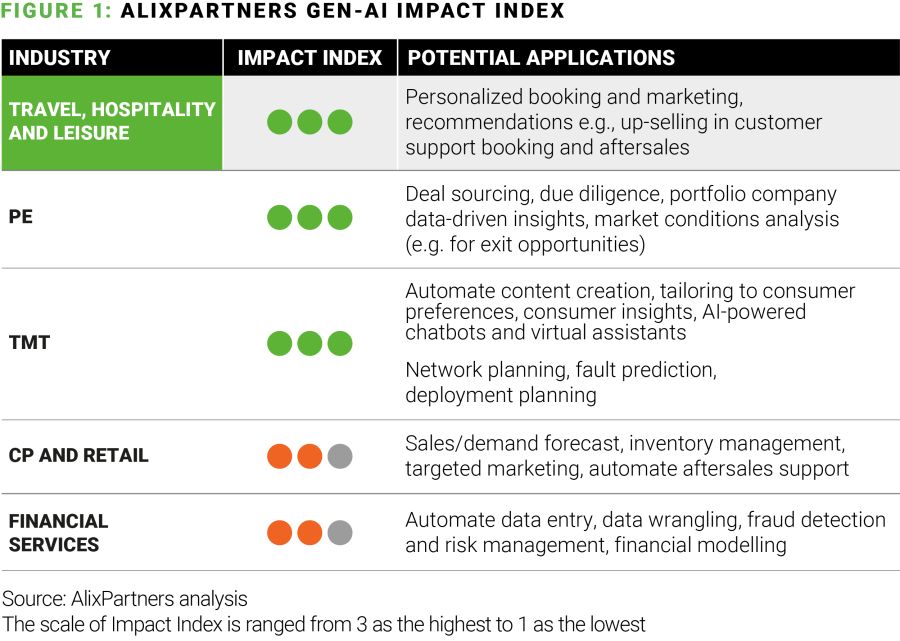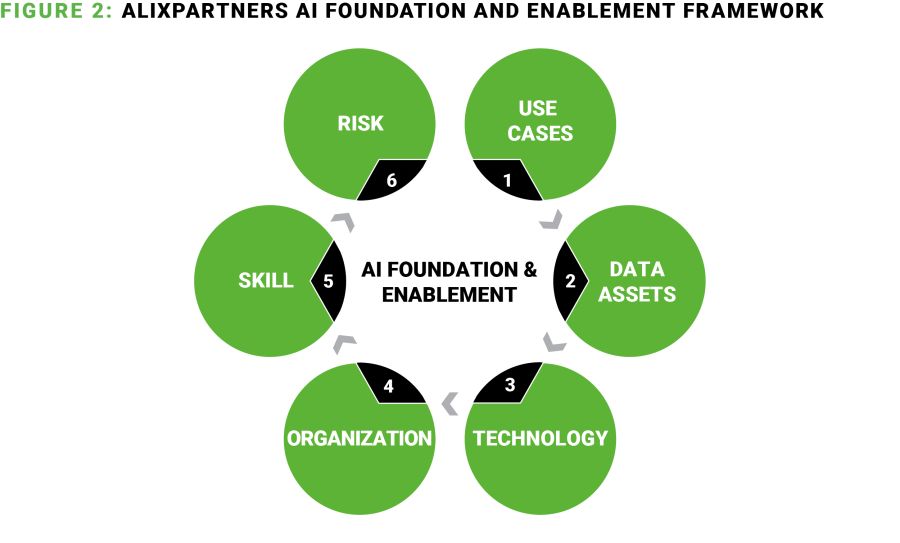The rapid evolution of generative AI (GenAI) technology, such as ChatGPT and Sora, represents one of the biggest disruptive forces to be faced by businesses in recent years.
These advances, coupled with existing traditional machine learning (ML) applications, present a golden opportunity for the travel industry, in particular the significant potential enhancements to customer service, driving greater speed, efficiency, and effectiveness. This shift is not just about staying ahead of the curve; it is about unlocking new operational efficiencies and elevating customer-centricity to unprecedented levels.
According to the AlixPartners Critical Consumer Survey, most consumers planned to maintain their discretionary spending on leisure travel in 2024, despite the constrained economic conditions. In addition, 70% stated their preference for online services with 40% also appreciating tailored offers. It is clear that AI-enabled customer services are not just an added-value option, but a necessity to secure long-term customer loyalty and engagement.
Furthermore, AlixPartners' Gen-AI Impact Index confirms the magnitude of the disruptive impact on the services and operations of businesses in the Travel, Hospitality and Leisure sectors (Figure 1), analyzed through the lens of impact to broader functional areas such as content, search, and pattern recognition outputs and processes.

We see a number of critical areas in travel where AI is already making significant strides, or challenging a fundamental rethink of operating models:
Customer Service: AI-powered chatbots and virtual assistants are transforming customer service, as these intelligent systems decipher travel requests, suggest tailored travel options, and offer destination choices. Additionally, AI assistants help travellers with booking information, itineraries, and local tips, enhancing the overall customer experience. TUI UK's Gen-AI-powered chatbot interface can interactively recommend in-destination travel experiences, increasing personalization and driving upselling of these activities.
Travel Operations: AI plays a crucial role in dynamic demand management and risk management. GenAI can automate content creation and management, dramatically reducing the need for labour-intensive work of this kind. ML-driven predictive analytics can also be deployed to assess potential travel disruptions, allowing companies to proactively adjust operational planning to minimize disruptions. Ryanair is using AI/ML-powered predictions to manage food and beverage demand on different routes to optimize inventory and carried weight.
Search and Inspiration
Online Travel Agents (OTAs), with their robust digital foundations,
are well-positioned to implement AI-powered services. For instance,
Trip.com uses TripGenie, an AI-powered travel assistant, to boost
customer engagement. Similarly, business travel and expense
management platform Navan leverages AI to offer personalized
customer experiences in corporate travel.
Traditional Tour Operators: These businesses with complex online and offline services must ensure their tech and organizational frameworks are ready for AI transformation. This transition presents both a threat and an opportunity, highlighting the need to close critical capability gaps.
Navigating the AI transformation journey
Businesses must cut through the hype and focus on key use cases that drive genuine business transformation. To succeed, it is essential to review the potential impact on current business models, as AI reveals promise of new digital product developments and alternative revenue streams to capitalize on.
The hurdles to capturing the value of AI opportunities are significant, ranging from technical complexity and access to quality data to ethical and regulatory concerns and talent acquisition and training. Even after addressing these issues, there still remains a sizeable gap to bridge from MVP to operationalization, and subsequent rolling model evolution and change management.
The AlixPartners AI Foundation and Enablement Framework (Figure 2) enables our clients to cut through the noise by following six key steps to identify viable use cases and business models and make sure that they are equipped to deliver tangible results.

Six steps to success
- Use cases: Use cases must be evaluated and prioritized against the business value they can deliver. Critically, the chosen use cases must gain alignment from key stakeholders to ensure buy-in and value-add.
- Data assets: The relevant data assets required for selected AI use cases – and the source of this information – must be clearly defined, alongside data taxonomies and data modelling approaches.
- Technology: Technical components to enable AI use cases and data management should be identified. Gaps in the current tech stack should be highlighted as high-level architecture is defined in alignment with IT, and before the technology selection and integration process begins.
- Organization: A critical path must be established, identifying the key stakeholders in AI projects, developed on the foundation of effective data governance and project management, which will ultimately give way to the execution of an organization-wide change management process.
- Skills: Similarly to step three, roles and skills within the organization should be locked in to ensure proficiency in Data, AI, DevOps, Cloud, Architecture, and IT Integration, with a strategy to address identified skill gaps (i.e., training) also deployed.
- Risk: Finally, security, ethical, and operational risk requirements for AI use cases must be assessed (including Data protection, privacy, and copyright), built into an AI-specific policy guard railing the development.
Conclusion
AI is not a fleeting trend, but a critical component for the
future of the travel industry. Companies that effectively harness
AI will be better positioned to thrive in an increasingly complex
and competitive landscape.
The most successful AI rollouts will address specific business
needs with clear, compelling business cases, potentially including
AI alongside other methodologies such as simple rules-based
automation, robotic process automation, and lean principles.
This transformation has already taken flight. If you'd like to learn more or discuss how we can help your organization drive more value, please get in touch.
The content of this article is intended to provide a general guide to the subject matter. Specialist advice should be sought about your specific circumstances.




